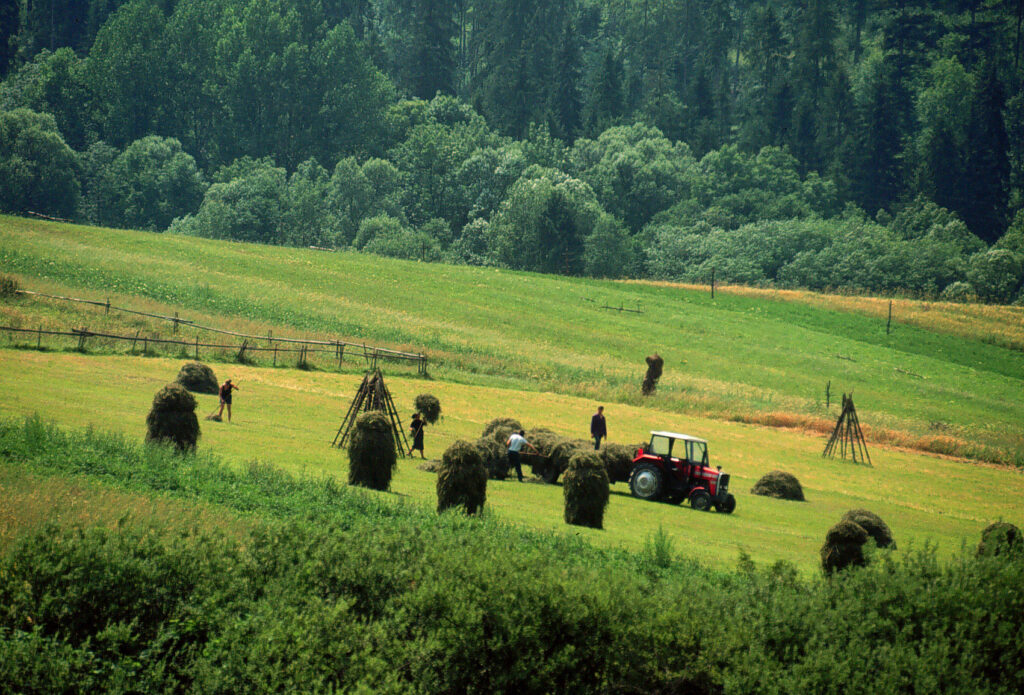The tragic consequences of the war in Ukraine shock us every day, and urgent action must be taken to address the humanitarian crisis and prevent global food shortages.
However, attempts by vested interests to use the war as a justification to water down environmental standards in Europe are misguided and counterproductive. Instead, we must prioritise nature and climate protection alongside short-term measures to absorb the shocks, while also supporting the most vulnerable both at home and abroad. This is the only way that food security can be achieved for the world’s growing population.
As EU agriculture ministers gather in Luxembourg this week to discuss food security and the implications of the war, it is important to remember that the EU is not facing food shortages. Rising food prices will indeed affect the most vulnerable, and social policies are needed to support them, but the war must not be used as an excuse to (further) weaken the new Common Agricultural Policy or to question policy initiatives such as the Farm to Fork and Biodiversity strategies, and new legislation on deforestation, restoration and pesticides, to name a few.
On the contrary, these policies are currently our only pathway to an EU food system that is able to withstand the consequences of the climate and biodiversity crises over the coming years and decades.
Rather than produce more, let’s produce and consume differently
Our European agricultural and food system is out of balance. The fundamental problem for our health, the environment and food security is the excessive consumption of animal products – almost twice that required to meet our dietary needs. In order to meet this demand, 60% of the grain and almost 70% of the oilseeds produced in the EU are fed to animals – and in addition, we import protein-rich feed and grains, often at the expense of the world’s forests and other precious ecosystems. This situation makes us vulnerable to future shocks. Shifting to more sustainable diets must thus be a priority.
The good news is that tens of thousands of European farmers have already started to make the transition to sustainable production: by diversifying their farms from specialised production to mixed farming; by reducing or even eliminating pesticides and synthetic fertilisers; by preserving soils, hedgerows and ponds; or by raising livestock on biodiverse pastures.
These agro-ecological farms are more crisis-proof as they do not rely on imported fertilisers and feed. And they guarantee our long-term food security by preserving the quality of soil, water, air and ecosystems. We must continue to support these farmers while also rallying others to join in transitioning to agro-ecology.
Global food production is sufficient to feed the world population but it is currently badly used: grains are fed to animals, used as biofuels, and wasted. Some of the world’s poorest countries rely heavily on wheat imports from Ukraine or Russia, and global food prices will rise further. But simply intensifying production in Europe is not the answer.
Rather than ramping up food production at home, the EU would be better placed to support global supply chains and increase food availability by other actions, such as tackling post-harvest loss. Approximately 145 million tonnes of food fail to make it off European farms each year – rescuing as much of it as possible would help alleviate short-term pressures, but also build a more resilient food system longer-term.
The EU agriculture ministers must make it clear that food security can only be guaranteed if we drastically reduce the risks. We must listen to the science: What threatens our food security is not environmental action, but attacks on the environment. The climate crisis, the loss of biodiversity, the pollution of our waters – all pose an immense threat to our agriculture. Important EU legislative processes must therefore be pursued with ambition, especially to stop global deforestation, restore degraded ecosystems, reduce pesticides and create sustainable food systems.
Now is not the time to abandon Europe’s transition towards a truly sustainable food system. Now is the time to pursue it with even more resolve.


